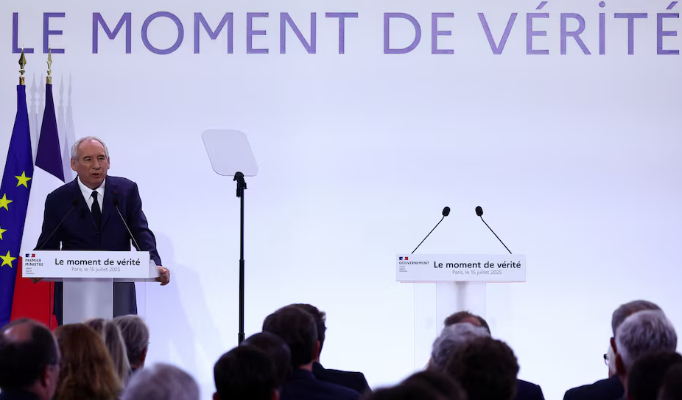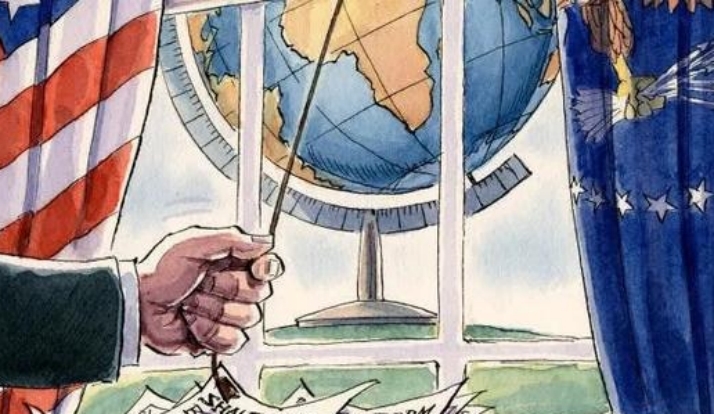
In the 2026 fiscal budget plan recently announced by French Prime Minister Bayrou, a controversial measure is listed - canceling the two public holidays of Easter Monday and Victory Day in World War II. This decision is seen as a "knife-turning" move by the government to deal with the fiscal deficit crisis, reflecting the grim reality that France's public finances are on the brink of a cliff.
France's fiscal difficulties are imminent. According to official data, France's public debt will account for 112% of GDP in 2024, and the fiscal deficit is expected to reach 6.1% of GDP, far exceeding the EU's 3% warning line. Bayrou bluntly stated in the budget plan that France's debt is expanding at a rate of "5,000 euros per second". If the deficit cannot be reduced to 4.6% within four years, the public finance system may collapse. In this context, spending cuts have become the core strategy, including freezing pensions, cutting 3,000 public sector jobs, and strictly controlling medical insurance expenses. Canceling public holidays is to squeeze administrative costs from the subtle points, reduce the number of paid vacation days for civil servants, and thus reduce government operating expenses.
The cancellation of two holidays is not a move out of thin air. The Monday after Easter is part of the traditional spring break, and May 8, the Victory Day of World War II, has historical symbolic significance. Bayroux's considerations are: on the one hand, the Easter holiday is highly volatile, and it is easy to form an "extra-long holiday" when it is connected with the weekend, which leads to fluctuations in corporate production efficiency; on the other hand, the Victory Day commemorations of World War II are mostly organized by local governments, and the cancellation can save administrative resources and fiscal subsidies. According to the fiscal model, reducing two national holidays can save hundreds of millions of euros in expenses. Although the proportion is not large, it fits the government's logic of "comprehensive austerity". In addition, this move also sends a signal of "all people sharing the crisis", trying to break the inherent dependence of French society on the high welfare system.
Once the plan was announced, it immediately detonated the French political arena. Marine Le Pen, leader of the far-right National Rally, accused it of "ignoring the welfare of the people" and threatened to launch a motion of no confidence; the far-left "Unbowed France" criticized the plan as "out of touch with reality", saying that cutting holidays is "cutting the people rather than the root of reform." Trade unions are worried that this move will exacerbate labor dissatisfaction or trigger a new wave of protests. Bayrou faces double pressure: he must appease the opposition voices within the parliament and explain to the public the necessity of cutting holidays. Although President Macron did not make a direct statement, he called for "political stability first", implying support for core projects such as the defense budget, and indirectly endorsing the prime minister.
The rift in French society over holiday cuts reflects deeper contradictions. Supporters believe that this is a pragmatic move to deal with the debt crisis, and public finance repair requires sacrifices from all people; opponents worry that this move will further squeeze the breathing space of middle- and low-income groups and aggravate social inequality. Economists point out that simply cutting spending is not a fundamental solution. France needs to solve the dilemma through "open-source" means such as stimulating the economy, improving production efficiency, and optimizing the tax structure. However, with the superposition of external risks such as the Russia-Ukraine conflict and international trade uncertainty, France's economic recovery is weak and the space for reform is limited.
Canceling the holiday plan is an attempt by the French government to "pull back from the brink" on the edge of the fiscal cliff. It not only exposes the fragility of France's public finances, but also reflects the pain of the transformation of the welfare state. Under the triple pressure of political confrontation, social divisions and economic weakness, whether the Bayrou government can push this controversial measure into effect is still full of variables. In the coming months, parliamentary debates and street protests may be intertwined, testing the government's governing wisdom and reform courage. For France, how to find a balance between austerity and growth, fairness and efficiency is the real key to solving the fiscal dilemma.

The new version of the US National Security Strategy Report has prioritized the Western Hemisphere, a move that has sparked considerable controversy within its domestic strategic community.
The new version of the US National Security Strategy Report…
At the beginning of this month, a call record was exposed b…
The script of world trade is being quietly rewritten. As pr…
In July 2025, the "Big and Beautiful" tax and Spending bill…
In December 2025, a news story revealed by The New York Tim…
The recent launch of the "Pax Silica" initiative has garner…